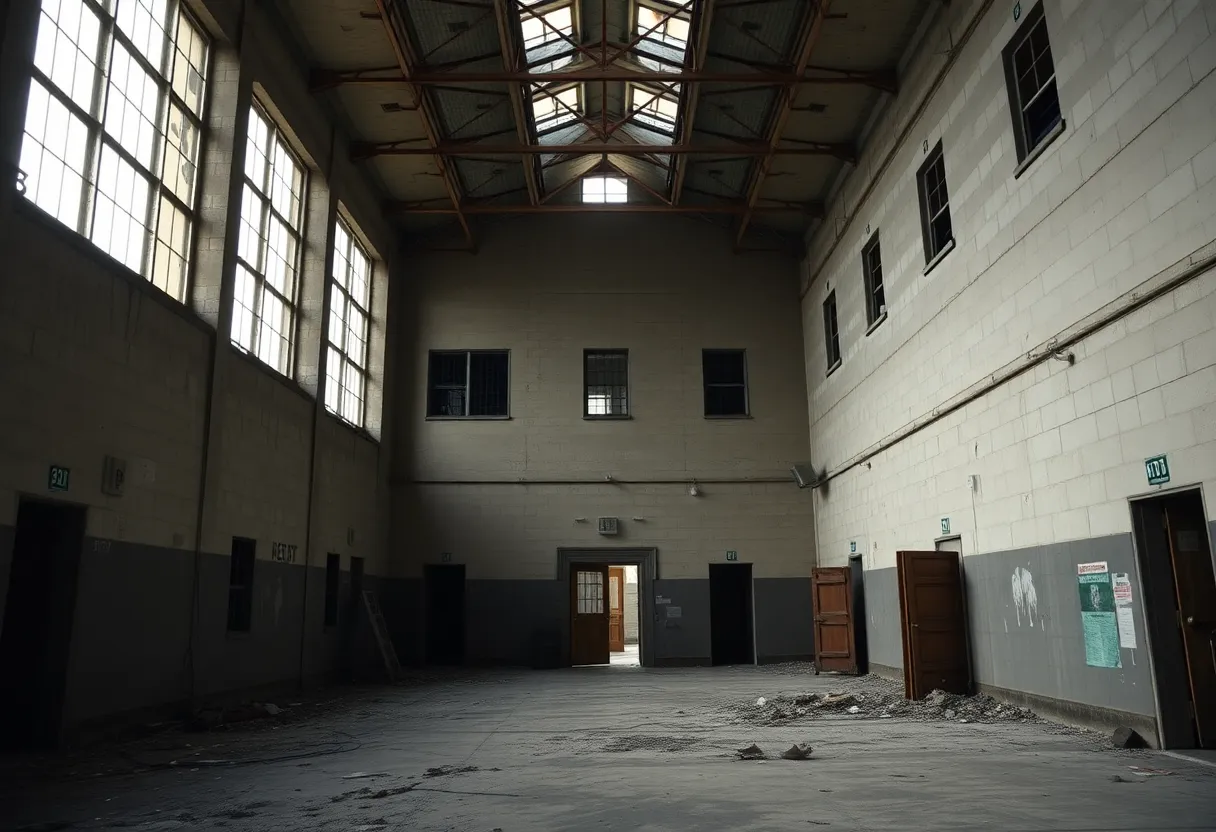News Summary
The U.S. federal prison system is undergoing significant changes as several facilities, like the Duluth prison, confront health hazards linked to asbestos. The Duluth facility is set for closure due to staff shortages and infrastructure issues, particularly concerning asbestos and lead paint. With 736 inmates and 89 employees, the facility’s problems epitomize a wider trend of federal institutions facing similar fates. Additionally, consumer products are also at risk, as demonstrated by Dynarex Corporation’s recent baby powder recall for potential asbestos contamination, emphasizing the need for awareness surrounding health risks associated with asbestos exposure.
Federal Prisons Face Closure Amid Asbestos Woes
The landscape of the U.S. federal prison system is undergoing significant transformations as various facilities confront serious challenges, including structural deterioration and potential health hazards related to asbestos. The Duluth federal prison facility is set for deactivation due to staff shortages, budget constraints, and an aging infrastructure that has raised alarm over hazardous materials such as asbestos and lead paint. This facility, alongside others in a troubling wave of closures, highlights the urgency of addressing the health risks associated with asbestos exposure.
The Duluth Facility’s Struggles
With a current population of 736 inmates and around 89 employees, the Duluth prison camp has been struggling to maintain operations. The Federal Bureau of Prisons has reported serious concerns regarding the facility’s infrastructure, noting that several condemned buildings contain asbestos, a mineral known for its long-term health dangers. Asbestos was widely used in home construction since the 1800s and is infamous for its link to mesothelioma, a form of cancer that affects the mesothelium, which is the protective lining around internal organs. Most cases of mesothelioma are the result of prolonged exposure to asbestos fibers, highlighting the critical nature of the Pentagon’s decision to decommission facilities known for their asbestos contamination.
In response to ongoing issues, employees from the Duluth facility will be diverted to another federal prison in Sandstone, allowing the Bureau to consolidate resources as it attempts to navigate the implications of closing such facilities. Furthermore, it’s not just the Duluth facility facing closure; similar fates await other federal institutions across Colorado, Florida, Pennsylvania, and West Virginia, all dealing with deteriorating conditions.
Dynarex Corporation’s Recall due to Asbestos Concerns
The risk of asbestos exposure is not limited to correctional facilities, as consumer products also exist on this hazardous spectrum. Recently, Dynarex Corporation expanded its recall of “Dynacare Baby Powder” products due to potential contamination with asbestos. These products, shipped after January 18, 2024, include 14 oz and 4 oz containers found in multiple states, including Minnesota. The FDA has classified asbestos as a naturally occurring mineral, which can be found near talc, a common ingredient in cosmetic products. Health officials strongly advise consumers to stop using the recalled baby powder immediately, urging them to return it for a full refund.
Health Risks of Asbestos Exposure
Asbestos-related conditions remain a serious public health challenge. When disturbed, asbestos fibers can be released into the air, leading to exposure that can irritate the mesothelium, further increasing the risk of developing mesothelioma, lung cancer, laryngeal cancer, and ovarian cancer. The U.S. Environmental Protection Agency has stated that asbestos in good condition, when left undisturbed, does not pose an immediate health risk, but any disturbances, such as drilling or renovations, can release harmful fibers. This underscores the importance of careful handling and awareness of the materials present in older buildings and consumer products.
Looking Ahead
As federal prison facilities undergo structural overhauls and closures, the issues surrounding asbestos exposure remain urgent. Communities must be vigilant regarding building safety and remain informed about potential exposure risks. The implications of asbestos contamination in both correctional institutions and consumer products necessitate thorough safety protocols to protect public health.
It is clear that the dialogue surrounding asbestos, its implications on health, and the necessary precautions will continue to evolve as federal agencies address these pressing issues. For concerned customers and employees, additional information regarding product recalls and facility safety is essential in navigating this perilous landscape.
Deeper Dive: News & Info About This Topic
HERE Resources
The Ongoing Johnson & Johnson Talc Controversy: A Deep Dive into Asbestos and Mesothelioma Risks
Asbestos Corruption Trial Resumes in Free State
Trial within a Trial Resumes for Key Player in Asbestos Case
Controversy Unfolds in Free State Asbestos Trial
Historic Hangar 3 Engulfed in Flames at Old Sarum Airfield
The Asbestos Roof Removal Trial Shakes Free State High Court
The Asbestos Scandal Trial Resumes Amid Milestone Celebrations
Swiss Billionaire’s Sentence Change in Asbestos Case Sparks Outrage
High-Profile Asbestos Scam Trial Causes Stir in Bloemfontein
Trial of Former Free State Premier Opens Amidst High-Profile Asbestos Case



















